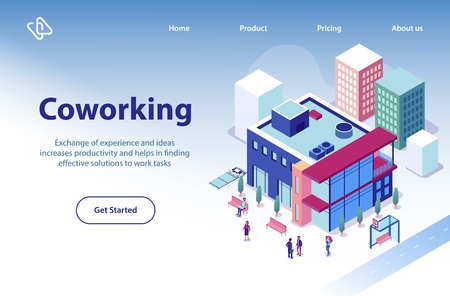Understanding the Importance of Industry-Specific Resumes
When you’re job hunting in the United States, one resume does not fit all. Customizing your resume for different industries is a game-changer if you want to stand out and land interviews. But why is this so important? Let’s break it down.
Why Customization Matters
Every industry in the US job market has its own set of expectations, preferred skills, and keywords that recruiters look for. For example, a resume for a tech company should highlight technical abilities and problem-solving skills, while a resume for a marketing agency might focus more on creativity and communication. Employers are looking for candidates who seem like a natural fit for their industry culture and needs. If your resume speaks their language, you’ll have a much better chance of getting noticed.
How Industry-Specific Resumes Impact Your Chances
Many companies use Applicant Tracking Systems (ATS) to scan resumes before a human ever sees them. These systems search for keywords related to the job description and the industry. If your resume is too generic or doesn’t include the right keywords, it might never reach the hiring manager’s desk. By tailoring your resume, you show both the ATS and real people that you understand what’s needed for the role—and that you took the time to match your experience to their requirements.
What Employers Want to See in Different Industries
| Industry | Key Skills & Qualities | Resume Focus Tips |
|---|---|---|
| Technology | Coding languages, technical certifications, project management | Mention specific tools and technologies; showcase problem-solving projects |
| Healthcare | Patient care, certifications (RN, CNA), attention to detail | Highlight licenses/certifications; demonstrate compassion and compliance knowledge |
| Marketing | Creativity, campaign management, analytics tools (Google Analytics) | Show results from campaigns; list creative skills and digital expertise |
| Finance | Analytical thinking, financial modeling, regulatory knowledge | Emphasize accuracy; mention financial software or certifications (CPA) |
| Education | Teaching experience, curriculum development, empathy | Cite credentials; focus on student outcomes and classroom innovation |
The bottom line is that customizing your resume isn’t just about swapping out a few words—it’s about showing employers that you understand their world. When you do this well, you increase your chances of making it past both digital filters and busy recruiters.
2. Researching Industry Needs and Employer Expectations
Before you start customizing your resume, it’s important to understand what different industries in the US are looking for in job candidates. Each sector has its own set of priorities, skills, and expectations. By researching these needs, you can tailor your resume so it speaks directly to what employers want.
Why Industry Research Matters
The US job market is highly competitive and diverse. Employers expect candidates to show not just their general abilities, but also specific industry knowledge and relevant skills. Knowing exactly what each industry values can help your resume stand out from the crowd.
Effective Strategies to Research Industries
- Study Job Descriptions: Read through several job postings in your target industry. Notice repeated keywords and required qualifications.
- Visit Company Websites: Look at the “Careers” or “About Us” pages to understand company culture and what they look for in team members.
- Use LinkedIn: Check profiles of professionals who already work in your desired field. Pay attention to their listed skills and experiences.
- Read Industry Reports: Find annual reports, market research, or news articles about trends in your chosen sector.
- Network with Insiders: Join relevant groups on social media or attend local events to hear directly from people working in the industry.
Uncovering Key Skills by Industry
Each industry values a unique set of core skills. Here’s a quick comparison to help guide your research:
| Industry | Top Technical Skills | Top Soft Skills |
|---|---|---|
| Technology (IT) | Coding languages, data analysis, cybersecurity | Problem-solving, adaptability |
| Healthcare | Patient care, medical terminology, compliance knowledge | Empathy, communication |
| Finance | Financial modeling, accounting software, data interpretation | Attention to detail, integrity |
| Marketing | Digital marketing tools, analytics, content creation | Creativity, collaboration |
| Education | Curriculum planning, assessment design, subject expertise | Patience, leadership |
Understanding Employer Expectations in the US Job Market
- Cultural Fit: Many US employers value teamwork and a positive attitude as much as technical ability.
- Diversity & Inclusion: Companies often highlight the importance of diverse perspectives; showing openness and respect for others can be a plus.
- Results-Oriented Mindset: Employers appreciate candidates who can demonstrate measurable achievements—use numbers and specific examples when possible.
- Lifelong Learning: Showing that you keep up with industry trends or have pursued additional certifications is attractive in fast-changing fields.
- Clear Communication: Being able to express yourself clearly—in both writing and speaking—is critical across all industries.
Your Next Step: Gather Insights Before Customizing Your Resume
The more you know about what your target industry wants, the better you can present yourself as an ideal candidate. Take time to gather insights before you begin tailoring your resume for each application. This preparation can make all the difference in catching a hiring manager’s eye.

Highlighting Relevant Skills and Experience
When you’re customizing your resume for different industries in the US job market, it’s crucial to make your most relevant skills and achievements stand out. Employers want to quickly see that you have what it takes to succeed in their specific field. Here’s how you can showcase your strengths in a way that matches the expectations of US hiring managers.
Identify Industry-Specific Keywords
Start by carefully reviewing job descriptions for your target industry. Pay attention to keywords and phrases that appear frequently—these often reflect the skills and experience employers are seeking. Including these terms in your resume helps it pass through Applicant Tracking Systems (ATS) and grabs the attention of recruiters.
Example: Tailoring Skills by Industry
| Industry | In-Demand Skills | Sample Achievement Statement |
|---|---|---|
| Information Technology | Project Management, Coding (Python, Java), Troubleshooting | Led a team of five developers to deliver a cloud-based solution three weeks ahead of schedule. |
| Marketing | Content Creation, SEO, Data Analysis | Boosted website traffic by 40% through strategic content campaigns tailored to target demographics. |
| Healthcare | Patient Care, EMR Software, Team Collaboration | Implemented new patient intake procedures, reducing wait times by 20% while maintaining high satisfaction scores. |
| Finance | Financial Analysis, Risk Assessment, Compliance | Developed risk assessment models that improved portfolio performance and minimized compliance issues. |
Showcase Transferable Skills
If you’re switching industries, don’t overlook transferable skills like leadership, communication, or problem-solving. Frame these abilities with examples that are relevant to the new field. For instance, if you managed a team in retail and are moving into customer service, emphasize your people management and conflict resolution experience.
Tip: Use Action-Oriented Language
Use strong action verbs such as “led,” “implemented,” “created,” or “improved” to start your achievement statements. This makes your contributions clear and demonstrates your impact.
Align Achievements with Employer Needs
Select accomplishments that directly relate to the employer’s goals. Quantify results whenever possible—numbers help hiring managers quickly understand the scope of your achievements. For example: “Increased sales by 25% within six months by introducing targeted promotions.”
Quick Checklist for Tailoring Your Resume:
- Match top skills from the job description with your own experiences.
- Edit bullet points to highlight industry-relevant results.
- Avoid generic statements; be specific about your contributions.
- Use metrics or data to back up your achievements.
- Keep language professional but approachable—just like a conversation with a future colleague.
By focusing on relevant skills and achievements tailored to each industry, you’ll ensure your resume speaks directly to US employers’ needs and sets you apart from the competition.
4. Adapting Language, Keywords, and Formatting
Why Language and Keywords Matter in Your Resume
When applying for jobs in the US, its important to speak the language of your target industry. Recruiters and Applicant Tracking Systems (ATS) scan resumes for specific terms and phrases that match the job description. Using the right words can help your resume get noticed and show you understand what the industry needs.
How to Adjust Your Resume’s Language
Every industry has its own set of jargon and preferred ways of describing skills and experiences. For example, a sales resume might talk about “closing deals” or “revenue growth,” while a tech resume would mention “coding languages” or “system optimization.” Study job postings in your field to see which words come up often, and use them when describing your experience.
| Industry | Common Keywords & Phrases |
|---|---|
| Technology | Agile, Python, UX/UI, cloud computing, troubleshooting, deployment |
| Sales | Lead generation, pipeline management, quota achievement, upselling |
| Healthcare | Patient care, HIPAA compliance, electronic health records (EHR), clinical support |
| Marketing | SEO, content creation, brand strategy, campaign analytics |
Integrating Industry-Specific Keywords for ATS Success
The ATS is software many US companies use to filter resumes before they reach a human recruiter. If your resume doesn’t have enough of the right keywords from the job description, it may not get through. Here’s how to make sure you’re using the best keywords:
- Study job ads: Find common terms across similar postings and add them where they fit your experience.
- Avoid keyword stuffing: Use keywords naturally—don’t just list them without context.
- Include variations: Sometimes the same skill has different names (e.g., “project management” vs. “program management”). Use both if relevant.
Optimizing Formatting for US Recruiters and ATS
Your resume should be easy to read for both humans and machines. Here are some US-friendly formatting tips:
- Use standard section headings: Like “Professional Experience,” “Education,” and “Skills.” ATS systems recognize these.
- Avoid images or graphics: Most ATS can’t read pictures or fancy formatting.
- Stick to common fonts: Such as Arial, Calibri, or Times New Roman in size 10-12 for clarity.
- Bullet points work best: They make it easier to scan your achievements quickly.
- Save as .docx or PDF (if allowed): These formats are generally compatible with most ATS software.
Quick Reference: Formatting Do’s and Don’ts
| Do’s | Don’ts |
|---|---|
| Brevity with bullet points Standard headers Consistent font style/size Simple contact info at top |
Photos or icons Text boxes/tables for main content Unusual fonts/colors Personal details like age or marital status |
The Bottom Line on Customization
The more you tailor your language, keywords, and formatting to each industry—and even each job—the better chance you’ll have of passing the ATS and impressing recruiters. Focus on clarity and relevance so your skills shine through in any sector you target.
5. Showcasing Cultural Fit and Soft Skills
When customizing your resume for different industries in the US job market, its not just about highlighting your technical abilities. Employers are also looking for candidates who will fit well with their company culture and possess essential soft skills. Demonstrating your cultural fit and soft skills can set you apart from other applicants.
Understanding What Employers Value
US employers typically value qualities like teamwork, adaptability, communication, leadership, problem-solving, and a positive attitude. Each industry may emphasize certain traits over others. For example, tech companies might prioritize innovation and collaboration, while healthcare organizations may look for empathy and resilience.
Techniques to Demonstrate Cultural Fit and Soft Skills
1. Tailor Your Summary Section
Start your resume with a summary that reflects values matching the company’s culture. Research the company’s mission statement or core values on their website and subtly integrate those keywords into your summary.
2. Use Action-Oriented Bullet Points
In your work experience section, describe how you used soft skills to achieve results. Be specific—quantify where possible—and mention outcomes that reflect both your abilities and alignment with workplace culture.
3. Include Relevant Extracurricular Activities
If you have participated in community service, professional associations, or group projects, list these activities to show you are engaged and collaborative outside of work too.
Examples of Soft Skills and How to Show Them
| Soft Skill | How to Highlight on Resume |
|---|---|
| Teamwork | “Collaborated with a cross-functional team to launch a new product line ahead of schedule.” |
| Communication | “Presented project updates to executive leadership, improving transparency across departments.” |
| Adaptability | “Quickly adapted to remote work during COVID-19, maintaining productivity and team engagement.” |
| Leadership | “Mentored three junior staff members, resulting in two promotions within six months.” |
| Problem-Solving | “Identified process inefficiencies and implemented solutions that reduced costs by 15%.” |
Industry-Specific Soft Skill Focus
| Industry | Cultural Fit & Soft Skill Examples |
|---|---|
| Technology | Innovation, willingness to learn, teamwork, agility in fast-paced environments. |
| Healthcare | Empathy, resilience under pressure, strong communication with patients and colleagues. |
| Finance | Integrity, analytical thinking, attention to detail, adaptability to regulations. |
| Creative/Marketing | Creativity, open-mindedness, collaboration across disciplines. |
| Education | Patience, strong interpersonal skills, commitment to continuous learning. |
Tip:
If you have received recognition or awards related to soft skills (such as “Employee of the Month” for teamwork), include these as concrete evidence of your strengths.


